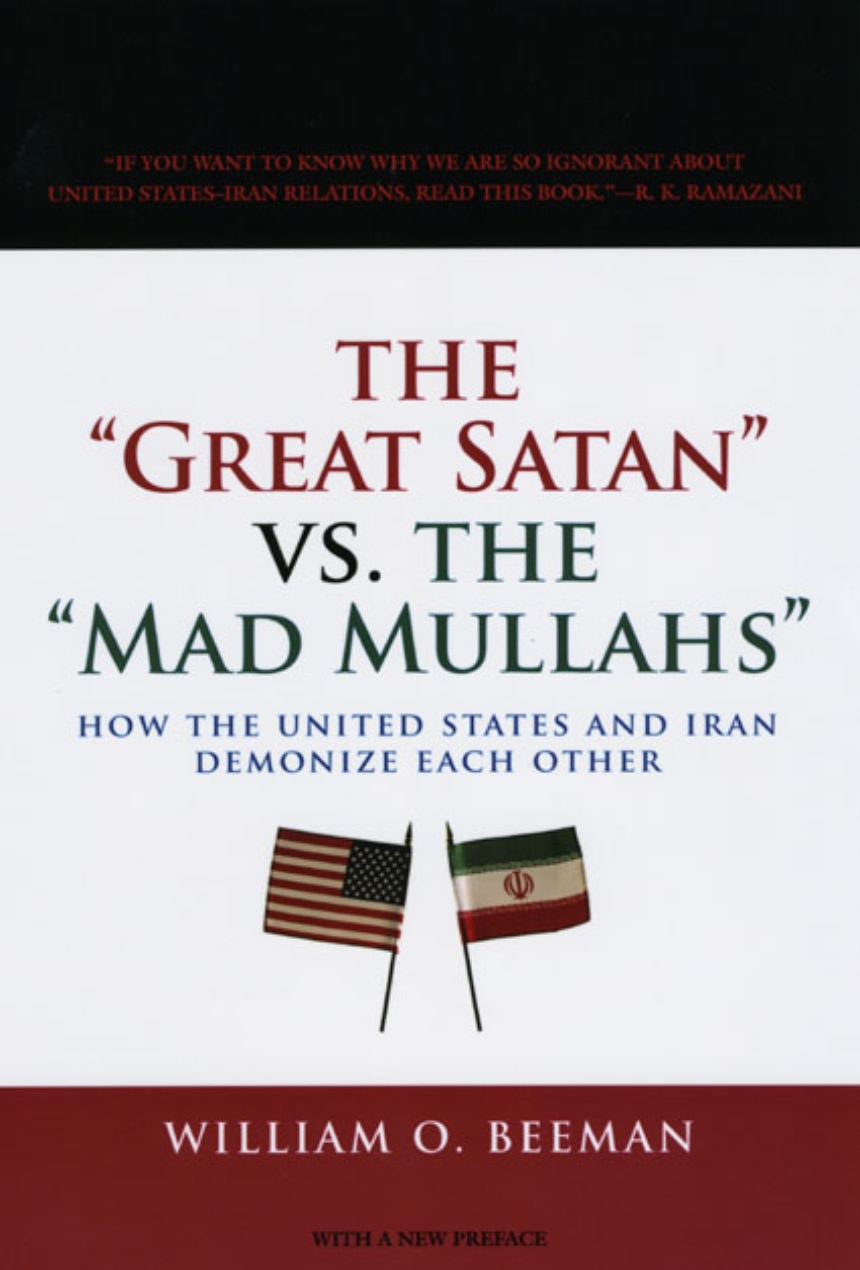The Great Satan vs. the Mad Mullahs
How the United States and Iran Demonize Each Other
9780226041476
The Great Satan vs. the Mad Mullahs
How the United States and Iran Demonize Each Other
For more than twenty-five years, the United States and Iran have been diplomatically estranged, each characterizing the other not only as a political adversary, but also as devious, threatening, and essentially evil. According to William O. Beeman’s provocative book, The “Great Satan” vs. the “Mad Mullahs,” such demonization is a self-fulfilling prophecy, as both countries have embraced exactly the policies and rhetoric that would particularly threaten or insult the other. Drawing on his experience as a linguistic anthropologist, Beeman parses how political leaders have used historical references, religious associations, and the mythology of evil to inflame their own citizens against the foreign country, and proposes a way out of this dangerous debacle.
“William Beeman’s analysis of dissonant perceptions of Iran and the USA is compelling and important. . . . I am particularly grateful for this work.”—James Peacock, University of North Carolina at Chapel Hill
“[Beeman] is more interested in informing the reader than in impressing his peers. The other strength of the book lies in the author’s knowledge of Iranian history and culture. . . . It challenges the reader and forces him to question stereotypes about Iran and Washington’s perspective on the country.”—Abbas William Samii, Middle East Journal
“William Beeman’s analysis of dissonant perceptions of Iran and the USA is compelling and important. . . . I am particularly grateful for this work.”—James Peacock, University of North Carolina at Chapel Hill
“[Beeman] is more interested in informing the reader than in impressing his peers. The other strength of the book lies in the author’s knowledge of Iranian history and culture. . . . It challenges the reader and forces him to question stereotypes about Iran and Washington’s perspective on the country.”—Abbas William Samii, Middle East Journal
320 pages | 6 x 9 | © 2008
Anthropology: Cultural and Social Anthropology
Political Science: Diplomacy, Foreign Policy, and International Relations
Religion: Religion and Society
Reviews
Table of Contents
Preface to the Paperback Edition
Preface
Acknowledgments
1. Discourse and Demonization
2. American Myths
3. Middle Eastern Myths
4. Discourse and Rhetoric
5. Images of the Great Satan
6. Images of the Mad Mullah
7. The Framework of U.S.-Iranian Relations: Modernization and Development as an Index of National Worth
8. The Sins of the United States
9. The Sins of Iran
10. The Birth of Postmodern Conflict: How Iranian Media Came of Age
11. Living with Iran: Resistance as Postmodern Discourse
Notes
Comprehensive Bibliography
Index
Preface
Acknowledgments
1. Discourse and Demonization
2. American Myths
3. Middle Eastern Myths
4. Discourse and Rhetoric
5. Images of the Great Satan
6. Images of the Mad Mullah
7. The Framework of U.S.-Iranian Relations: Modernization and Development as an Index of National Worth
8. The Sins of the United States
9. The Sins of Iran
10. The Birth of Postmodern Conflict: How Iranian Media Came of Age
11. Living with Iran: Resistance as Postmodern Discourse
Notes
Comprehensive Bibliography
Index
